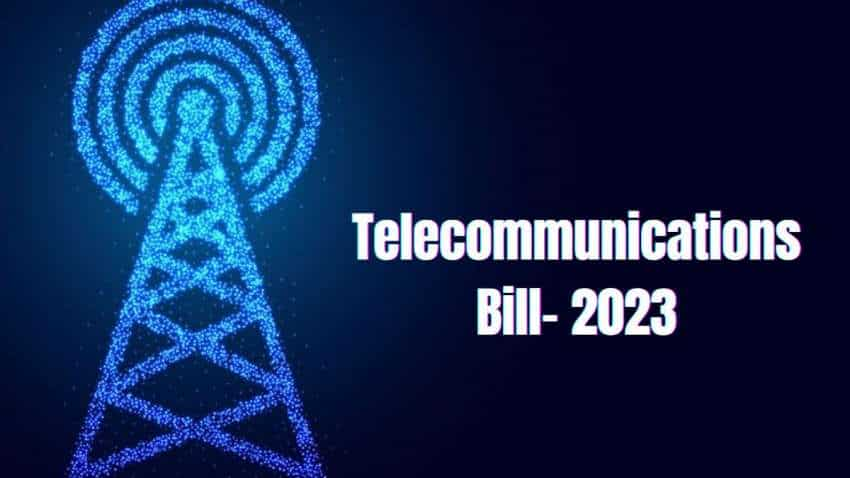The Telecommunication Bill, 2023: Impact on Net Neutrality and Freedom of Speech Online
The Telecommunication Bill, 2023, introduced by the Government of India, aims to modernize telecom regulations but raises concerns about net neutrality and freedom of speech online. The Bill grants the government authority over internet traffic prioritization and digital platform regulation, potentially allowing telecom companies to favor certain content. While proponents argue it enhances security and curbs misinformation, critics fear censorship, surveillance, and barriers for smaller platforms. The Bill's impact on online freedom, competition, and digital rights will depend on how policymakers balance regulation with an open and accessible internet.


The Telecommunication Bill, 2023: Impact on Net Neutrality and Freedom of Speech Online
The Government of India has introduced the Telecommunication Bill, 2023, with the intention of modernising and overhauling the regulatory structure that oversees the country's telecoms industry. Its provisions on net neutrality and the regulation of online speech have caused considerable concern among a number of stakeholders, including telecom operators, internet service providers, civil society organisations, and advocates for digital rights, even though it includes a number of reforms aimed at addressing technological advancements and the growing demand for digital services. Using a thorough analysis of the text and professional comments, this blog investigates how the Telecommunication text might affect online freedom of speech and net neutrality.
1. Overview of the 2023 Telecommunications Bill Consolidating current telecommunications legislation into a single legislative framework is the goal of the Telecommunication Bill, 2023. It addresses a number of topics, such as spectrum distribution, telecom service licensing, and the function of the Telecom Regulatory Authority of India (TRAI). Crucially, it brings about a number of changes concerning internet governance, particularly with regard to the control of digital platforms, internet services, and over-the-top (OTT) content providers. This Bill's clause giving the government the authority to regulate digital platforms and place additional duties on telecom corporations is one of its main features. This includes steps to protect consumers in the digital sphere, control the architecture of telecom services, and limit harmful online content. However, the Bill's two main clauses have drawn the areas under the greatest scrutiny: online speech control and net neutrality.
2. The Importance of Net Neutrality The idea that internet service providers (ISPs) ought to handle all data sent over the internet equally, without bias or favour, is known as net neutrality. This means that in exchange for larger fees or under other discriminatory conditions, ISPs are not allowed to restrict, slow down, or give preference to particular categories of internet traffic, such streaming services, social media sites, or online gaming. When the TRAI published a historic recommendation in 2016 prohibiting discriminatory actions by ISPs, net neutrality in India became a significant issue. Following the introduction of Facebook's Free Basics program, which sought to give users free access to a narrow selection of websites but was viewed by detractors as a breach of the open internet. The Indian government enacted a set of policies in 2018 that specifically supported net neutrality. However, the Telecommunication Bill, 2023's provisions have raised questions about whether the idea would remain relevant in India.
3. The Telecommunication Bill's Net Neutrality-Related Provisions A clause of the Telecommunication Bill, 2023, gives the government the authority to enact laws pertaining to internet traffic prioritisation and differentiation. The Bill adds a framework for some forms of traffic prioritisation under particular conditions, even while it permits the maintenance of net neutrality in other situations. The Bill gives the government the authority to create exceptions to the net neutrality principle, especially in cases of "emergency" and for the advancement of specific "critical services," such medical and e-governance platforms. This clause gives ISPs the ability to favour particular services or content over others, which could jeopardise the free internet. Opponents contend that the Bill's expansive wording permits violation of net neutrality rules, particularly when it comes to influencing the digital economy to the advantage of big businesses and government-sponsored projects. Furthermore, the Bill contains clauses that can result in additional regulation of internet traffic, giving the government the authority to enforce data localisation regulations and the duty to keep a closer eye on online usage. Even while these clauses might be intended to increase security, they might unintentionally compromise the openness and equity that are essential to the concept of net neutrality. Proponents of net neutrality worry that these clauses could give the government and large telecom firms considerable control over the internet ecosystem, which could impede innovation, limit consumer choice, and create an environment where only those with political or financial clout can have their content or services prioritized.
4. Online Freedom of Speech: The Indian Constitution guarantees the fundamental right to free speech. The internet has emerged as a vital medium for the exercise of this freedom, enabling people to freely access information, discuss ideas, and voice their opinions. However, there have been calls for stronger control of online speech due to the growing influence of digital platforms on public debate, particularly in relation to hate speech, fake news, and cyberbullying. The Telecommunication Bill of 2023 gives the government a lot of authority to control online material and digital platforms. This involves requiring internet platforms and telecom operators to handle illegal content, such as that which threatens national security or incites violence. Although these clauses could appear Although these clauses would appear to be required to shield users from offensive material, there are worries that they might result in censorship and overreach. The Bill could jeopardise the values of free speech and the free flow of ideas online by giving the government the authority to restrict websites and online services that it determines to be damaging or unlawful. The Bill's possible impact on start-ups and smaller digital platforms is a major source of worry. Smaller social media companies can be subjected to excessive pressure, even as major firms like Facebook, Twitter, and Google have the means to abide by legal requirements. Only big businesses may be able to afford to operate in India's digital landscape due to the high costs of compliance and complicated regulatory issues, which could inhibit innovation. Additionally, the Bill Government rules may put unfair pressure on smaller players. Only big businesses may be able to afford to operate in India's digital landscape due to the high costs of compliance and complicated regulatory issues, which could inhibit innovation. Additionally, the Bill permits the development of a framework that would make it easier to monitor and spy on internet communications. Critics contend that these measures may violate users' rights to privacy and freedom of expression, despite the government's assertion that they are necessary for security. Because the Bill is vague about the extent of government intervention, it could be abused.
5. Issues and worries raised by stakeholders Numerous parties, including telecom firms, digital rights organisations, legislators, and the general public, are engaged in a contentious discussion as a result of the introduction of the Telecommunication Bill, 2023.
Telecom Operators: A lot of telecom operators are worried that the rules pertaining to internet regulation and net neutrality can make their business operations more difficult. They contend that giving some content priority might generate much-needed income, but the Bill's vague provisions raise questions about how these practices might be carried out.
Groups for Digital Rights: Proponents of digital rights are especially worried about the possibility of censorship and the suppression of free expression. They contend that the Bill's provisions governing internet material may result in more government monitoring, which could be applied to keep an eye on and manage dissent and political discourse.
Public Concern: The Bill has elicited a range of reactions from the public. Some fear that it could erode democratic liberties and restrict access to information, while others see it as an essential measure to protect digital infrastructure and stop the spread of bad content.
Conclusion:
An important change in India's strategy for regulating the digital and telecoms sectors is the Telecommunication Bill, 2023. The Bill raises important issues about net neutrality and online free speech, even as it delivers much-needed modernisation and reform. The clauses that permit internet traffic prioritisation and more government control over digital platforms run the risk of undermining fundamental liberties and upsetting the open internet. Policymakers will need to strike a careful balance between protecting the values of net neutrality and online free speech and guaranteeing the security and integrity of India's digital infrastructure as the Bill passes through the legislative process. In the future, the opinions of digital rights activists, civil society, and other interested parties will be essential to guaranteeing that everyone may still access, use, and benefit from India's digital future.
References
1. PRS India. (2023). Telecommunication Bill, 2023. [https://prsindia.org]
2. TRAI (Telecom Regulatory Authority of India). (2016). Recommendations on Net
Neutrality. [http://www.trai.gov.in]
3. Bhatnagar, A. (2023). Net Neutrality and Regulation in India: A Regulatory Perspective.
Journal of Telecommunications, 10(3), 215-229.
